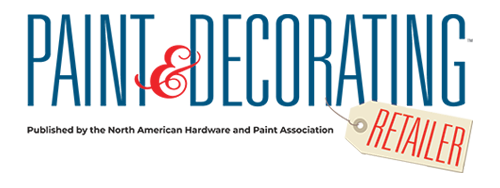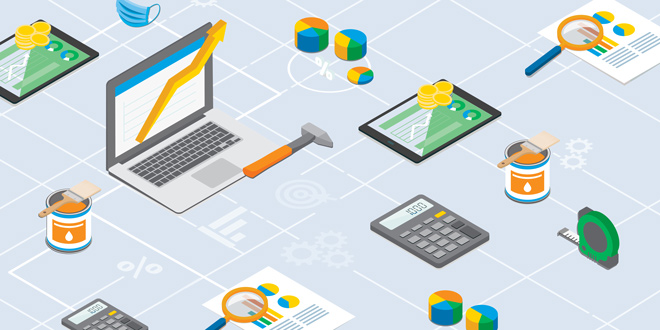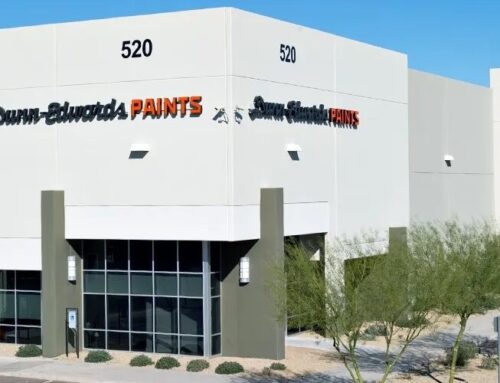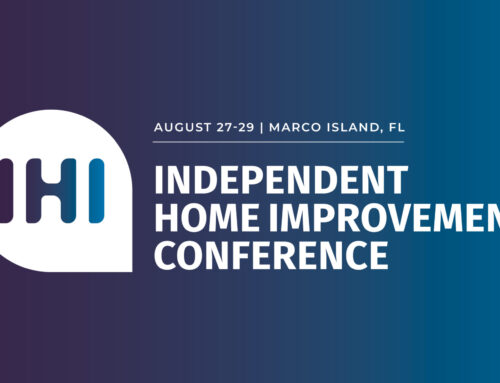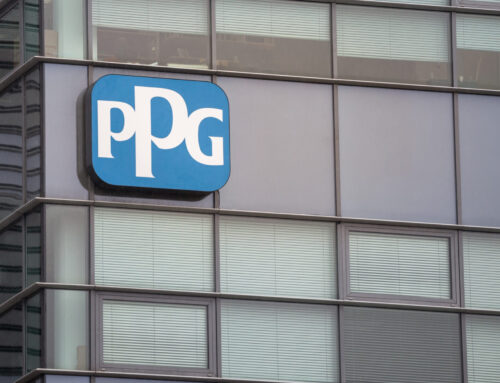Years from now, when our children and grandchildren are studying history, there will almost certainly be a chapter in their virtual textbooks that focuses on 2020. One might easily argue that 2020 will be remembered among the most influential years of the past two decades.
In this space, there is no need to revisit the myriad reasons 2020 has earned this dubious distinction. However, it is hard to separate the historical aspects of 2020 from the impact these events have had on the home improvement industry.
Before we dive into our industry analysis, we want to drive home a simple point that bears repeating. It always seems a bit callous to focus on the business aspect of the past 11 months without at least recognizing the real, brutal toll that comes along with the financial impact.
While the pandemic has brought a windfall in spending on home improvement, it has come at a cost that no one would want to diminish. We must at least acknowledge that, while it has been a record-setting growth year for home improvement, much of it has been fueled by the ripples from COVID-19, the subsequent lockdowns and the related lack of competition for disposable income.
It should also be noted that the sales increases experienced by home improvement retailers have been hard-fought during this period. Owners, managers and front-line employees, all considered essential to the economy, have worked long hours in indescribably difficult conditions to keep home improvement goods and services flowing to their communities.
While history books might not record the details of how home improvement retailers were impacted during this time, and how their employees and teams rose to the occasion, it is certainly worth noting here.
Unprecedented
There is really no other word to represent what the home improvement retailing industry has seen during 2020 other than unprecedented. The growth the industry has experienced during this extremely short window is truly unlike anything we have seen in recent decades.
The year started out its first quarter posting modest gains over 2019. In early to mid March it looked like we were on pace to hit the 4.5 percent growth that we had predicted in this same space last year.
By the end of the second quarter however, it was a completely different story. Following the onset of the pandemic, subsequent lockdowns and the declaration that home improvement stores were essential to the economy, sales exploded.
Sure, there were huge increases in home improvement spending during the 1990s as the housing market roared into uncharted territory. This growth was more gradual and occurred over a period of years.
Throughout this more recent sudden increase in sales, NHPA kept in touch with retailers from across North America. Early on, the general sentiment was that we would see a three- or four-month increase in sales, a plateau and then a normalization around the end of Q3 and into the balance of the year.
As we go to press, the rocket ship has not lost any fuel and sales momentum continue to soar.In fact, sales were increasing at such a pace that actually keeping tabs on how fast they were increasing became difficult.
That being said, NHPA is estimating that overall sales for the industry in 2020 will increase by about 12.4 percent over 2019, bringing total sales in the industry to an estimated $457 billion.
Just tracking the U.S. Census Bureau reporting of sales in the NAICS 444- (home improvement retail) category (non-seasonally adjusted) puts the estimate just slightly lower at about 12.5 percent year over year.
Our friends at the Home Improvement Research Institute (HIRI) and IHS Global, as of the end of Q2, were predicting a more modest increase for the industry of about 8.7 percent (11 percent consumer and 3.5 percent pro). We understand that this is a relatively wide range of predictions, but there are several reasons for that.
The main factor driving these disparities is uncertainty in future performance. Most predictive analysis relies on lagging sales data to make future predictions. So far this year, we have all anticipated (and not yet seen) a drop-off from record performance, which somewhat skews typical predictive models.
When we are seeing large home improvement retailers such as Lowe’s post sales increases of
35 percent in one quarter, there is a wider margin for interpretation. (As of this writing, we did not have Q3 results from major industry retailers.) Secondly, the housing market and professional product sales also factor into the overall industry, and the housing market hasn’t exactly performed as predicted this year.
Then, when you figure in other non-industry related events (the election, potential stimulus, a resurgence of the virus) and it may at least be a bit more understandable why this year’s predictions are a bit more “diverse.”
Moving Forward
Ever since home improvement sales started surging at the end of the first quarter, the industry has been asking, “How long will this last?”
That question still persists. There are also less tangible factors that could impact home improvement sales in 2021, such as whether additional stimulus is offered or whether a vaccine opens up additional options for homeowners to spend their money on.
Lastly, and possibly most importantly, is that there will come a time when homeowners have worked through their project lists and we see at least a temporary fatigue in home repair and remodeling.
Considering all these factors, NHPA is predicting a slight decline in home improvement retail sales in 2021. We are anticipating a decline in industry sales of approximately -0.7 percent against 2020. We anticipate that Q1 should continue to see increases that will likely flatten out in Q2, and that while Q3 and Q4 will be robust when compared against 2019 or other average years, sales will dampen when compared to 2020 performance.
The team at the HIRI/IHS Markit is predicting sales to slow by about -0.1 percent on the consumer side in 2021 but for that to be buoyed by more robust spending from professionals (5.3 percent) translating to a 1.5 percent increase for the industry overall next year.
At NHPA, we also feel that consumer spending will soften before professional projects early in 2021, but a potential bright spot for home improvement overall could be if interest rates remain low going into the spring and summer months.
Beyond that, both NHPA and HIRI/IHS see the industry returning to more consistent levels of growth. Through 2024, NHPA is predicting the industry to grow at a compound annual rate of approximately 3.9 percent, while HIRI/IHS has pegged that figure at 3.7 percent (at current prices).
